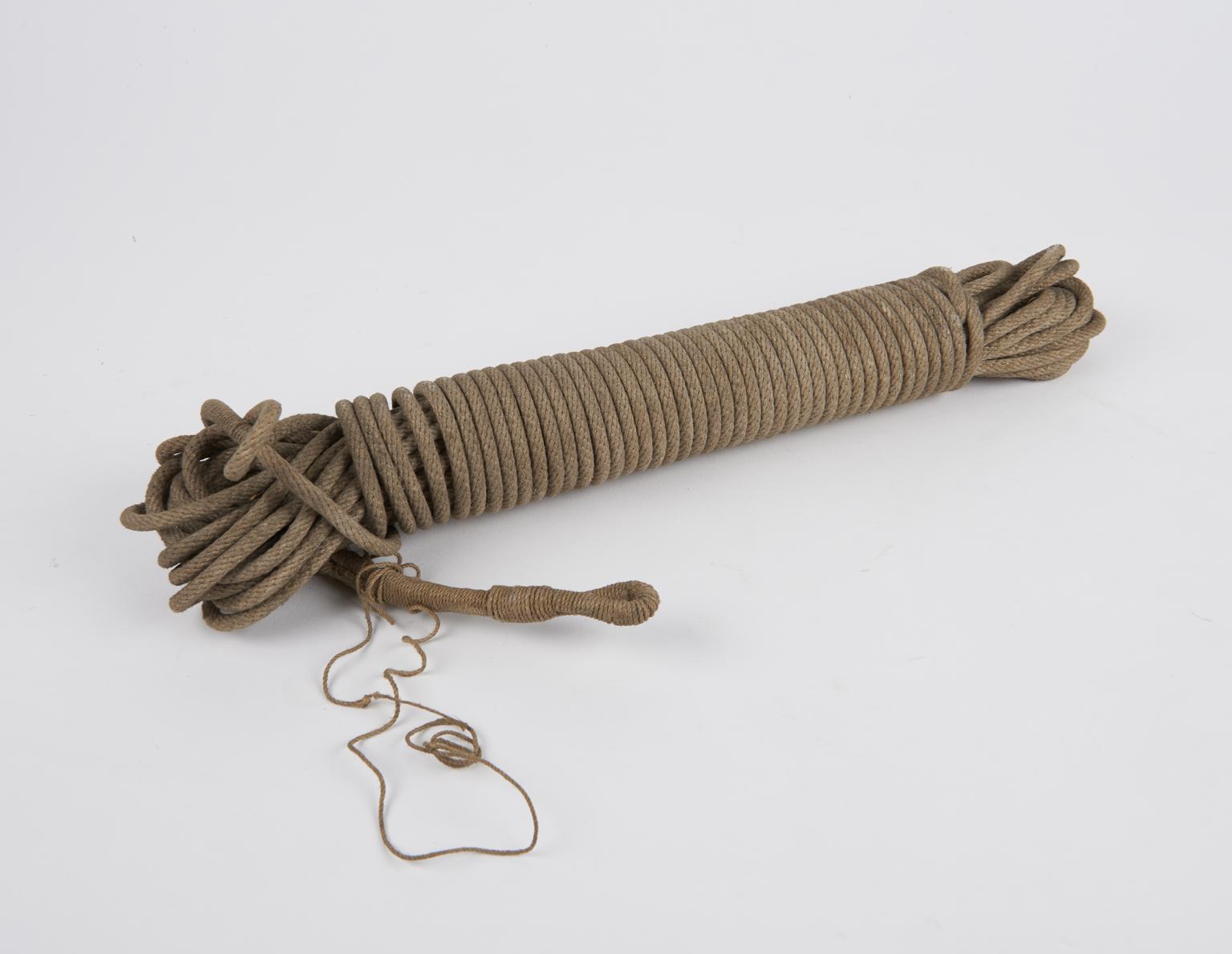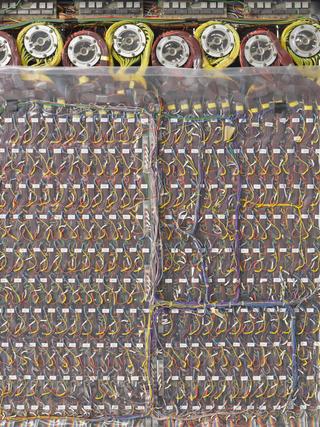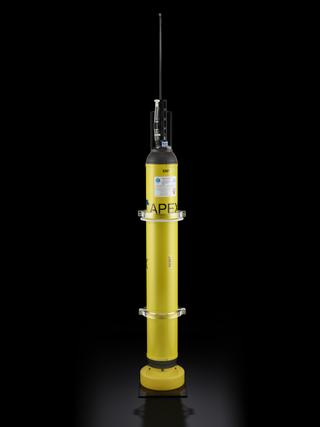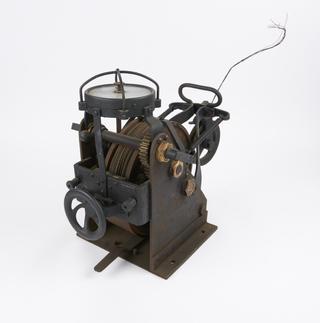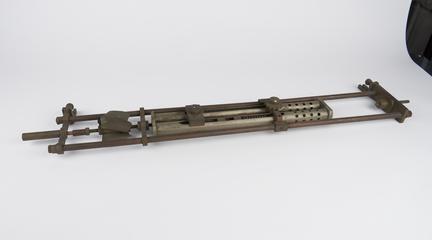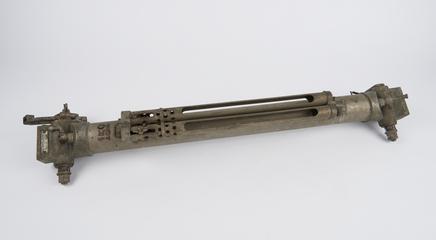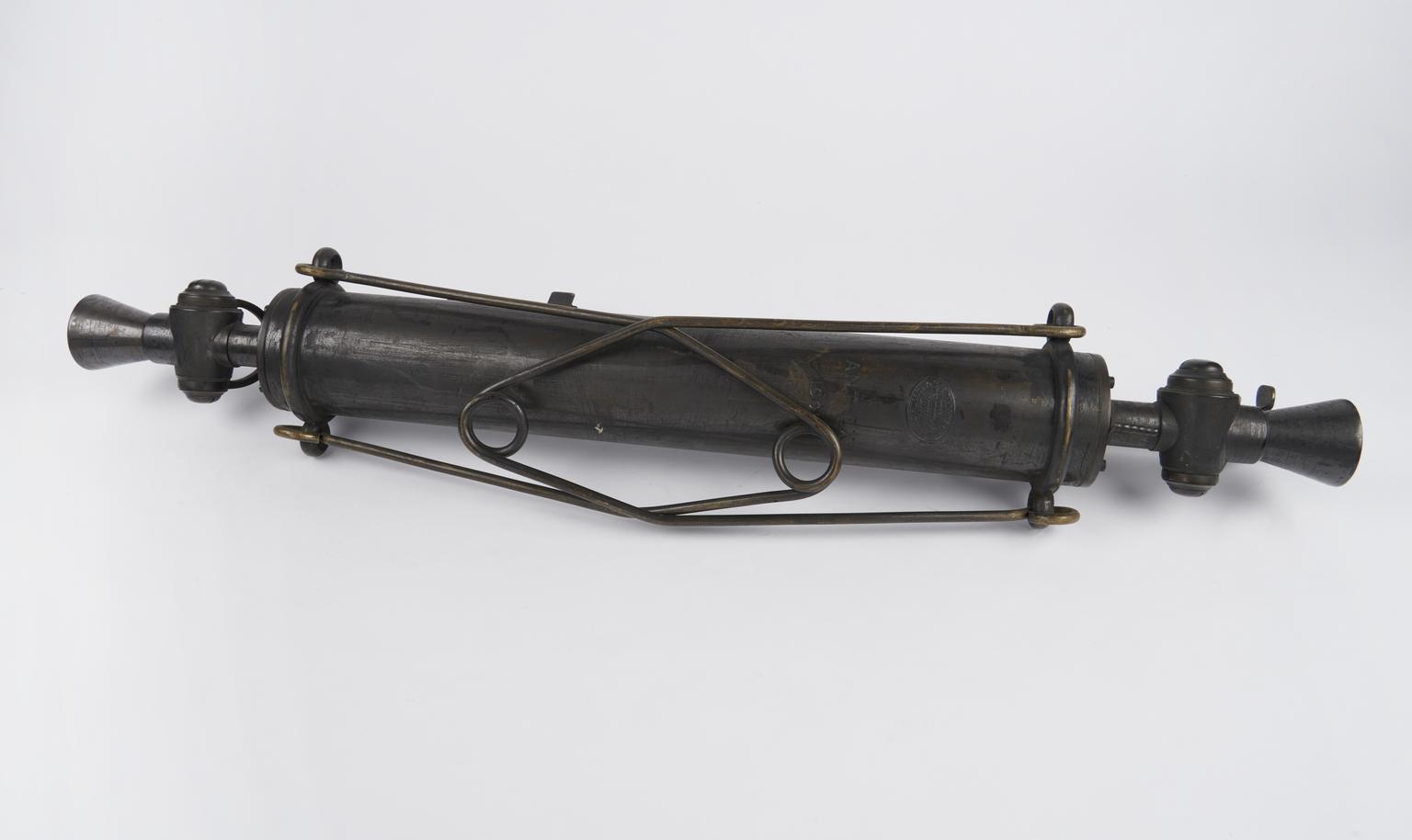
Knudsen’s reversing thermometer, component from stopcock waterbottle used on British Antarctic Expedition, 1901
Knudsen improved reversing thermometer no.2, that incorporated modifications designed by Danish oceanographer Martin Knudsen; part of stopcock waterbottle designed by John Young Buchanan, made by James Milne and Son, Glasgow, UK, and used on British Antarctic Expedition, 1901.
More
This waterbottle was designed to collect samples of seawater from designated depths in the ocean. Bottles were sent down from a ship on a weighted line or wire, and once at the required depth a messenger weight was sent down the wire. The weight fell on the trigger, and the weight of the attached connecting rod caused the stopcock mechanism to close. This particular closure mechanism was designed by John Young Buchanan, who had been the chemist aboard HMS Challenger in the 1870s.
The device was also fitted with a reversing thermometer that recorded the temperature at the depth at which the sample was collected.
This device was used aboard a number of expeditions, including the British Antarctic Expedition 1901-1904 (also known as the ‘Discovery’ expedition), and the Scottish ‘Scotia’ expedition 1902-1904.
- Materials:
- metal (unknown)
- Object Number:
- 1911-225 Pt1
- type:
- thermometer
- Image ©
- The Board of Trustees of the Science Museum
